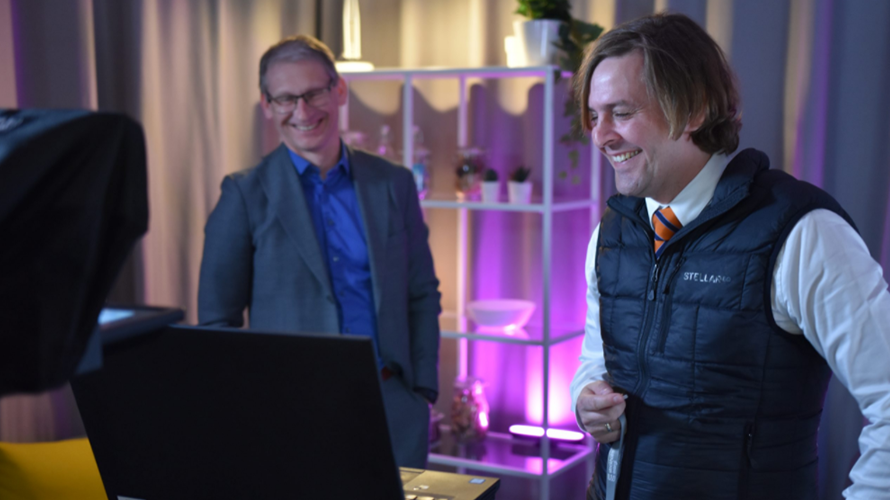At Stockholm Exergi, we have set our sights on large-scale capture and storage of carbon dioxide using bio-CCS at our bioenergy-generation plant in Stockholm’s Värtan neighborhood. We are working intensively in our research facility to improve our bio-CCS technology and create the best method for large-scale carbon capture. The goal is to remove 800 000 tons of carbon dioxide from the atmosphere every year.
But the issue is larger than just getting the right technology in place. It is also about politics and the economy. What do politicians want and what would a business model for bio-CCS look like? At the end of the day, it’s about the great benefits of bio-CCS and negative emissions, of which there is no doubt.
We recently participated in an international Eurocities webinar hosted by the cities of Stockholm and Amsterdam. Eurocities is an exciting network that brings together 190 European cities from 39 countries to inspire each other on many issues, one of which is course climate and the environment.
Professor Myles Allen, head of the division for dynamic climate analysis at Oxford University and a lead author of many of the UN’s climate reports, is someone who knows where it’s at. In his introduction to the webinar Professor Allen was very clear about how bio-CCS plays a critical role in reaching the climate goals set by the Paris Agreement. The reason is simple: we must go all the way down to net-zero emissions and time is of the essence. He emphasized that there is no conflict between eliminating fossil fuels and capturing carbon dioxide, because we must do both.
We must do both. This statement is something that we constantly repeat in our negative emissions messaging, and Fabian took the opportunity to highlight it in his presentation during the conference. Stopping the use of fossil fuels is key to ending global warming and fulfilling the Paris goals. However, there are also emissions that are almost impossible to eliminate, such as the release of nitrous oxide in plowing land.
This is why we need bio-CCS, because we will never be able to capture these and other emissions if we lack technical and economically viable alternatives. If you pump oil and then capture and store those emissions, you only get net-zero emissions; it does not counteract emissions from other sectors. Professor Allen pointed out that approximately 75 percent of all fossil emissions are cheaper to just phase out compared to compensating for them via carbon capture. However, that last 25 percent is beginning to get so expensive to phase out that it can be cheaper to capture it. Many reports arrive at the same conclusion. In Sweden, upwards of 20 percent of greenhouse gas emissions may need to be counteracted through negative emissions.
During the webinar, Professor Allen discussed a proposal in the form of a global producer responsibility, like what manufacturers of home electronics have to adhere to. We thought this was an exciting alternative and a potential way forward. If manufacturers of a product are responsible for capturing their emissions, we would have a market for those who can create negative emissions at a reasonable cost.
In our opinion, one of the coolest things is that the potential to create negative emissions using bio-CCS in Sweden is so much larger than our actual need for it. We could export 20-27 million tons of negative emissions yearly. The benefit for Sweden is increased export of a service that is really needed in the climate transition – negative emissions. Other countries who purchase negative emissions would thereby reduce the costs of their climate transition and most of all have a way to manage the emissions that they can’t avoid.
We believe that webinars like Eurocities are very important to getting bio-CCS in place because they are meeting places for the public and private sectors and academia. The benefits are made clear for everyone and it is apparent to each participant how they can contribute. Stockholm’s Vice Mayor for Environment Katarina Luhr and Stockholm Exergi’s CEO Anders Egelrud both gave speeches, and many other cities see Stockholm as a source of inspiration.
The idea of being able to inaugurate a large-scale facility for bio-CCS in our capital city within a few years is fantastic. It would really put Stockholm on the map in terms of the climate issue, but most of all it would be an important step in limiting global warming.
See the entire webinar here:
Authors: Anders Egelrud and Fabian Levihn

